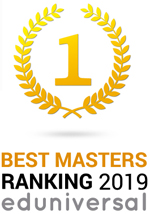Other Publications
Publications in the press and other media.

November, 09 2020 | Editorial office
Roser Fernández and Mònica Reig (2020), El valor social de la cooperació (The Social Value of Cooperation), El Punt Avui
On the 10th anniversary of the Observatory of Public-Private Cooperation (PPC) in Health and Social Policies run by Esade’s PARTNERS Program and La Unió, we seek to set the challenges of this collaboration by observing the quality of governance and social contribution. States and organizations alike show our commitment to the sustainable development goals. Indeed, one of those goals is about partnership. Within this, PPC encompasses the multiple forms of cooperation that exist between public administration and enterprise. This approach makes it possible to create inter-sectoral partnerships in order to attain common goals of general interest, and to overcome to a large extent mistrust and ideological prejudice.
Francisco Longo (2020), El ‘glamour’ escondido del servicio público (The Hidden Glamour of Public Service), Expansión
Imagine Laura, an engineer aged twenty-something, straight out of an international postgrad in data science. Eager to get her first job and interested in developing artificial intelligence applications, she is looking for an interesting professional project to get involved in for a time, in Spain or abroad, to continue to learn and specialize. But she would also like to work in something with social impact. If possible, something connected to the protection of the environment, which is one of her concerns.
Juan Luis Manfredi (2020), Líderes políticos y directivos públicos profesionales (Political Leaders and Professional Public Managers), Cinco días
The pandemic has laid bare the shortcomings of the public sector, warranting a reflection about how we face uncertainty from policies and public management. In the current scenario, provocation, polarization and protest articulate the three Ps of the political context. The general situation of disaffection and discouragement calls for political leaders who make informed, evidence-based decisions using ex-ante and ex-post evaluation criteria. And measures of this sort radically affect the public management model of which we have availed ourselves. It is a priority, and all the more so in the face of the arrival of European recovery funds, for the administration to acquire analytical and intelligence skills enabling it to transform the country in a particular direction (ecological transition, equal opportunities, industrial reshoring, digital transformation, to mention the most recurrent). Organization as it stands today, excessively bureaucratized, hinders the professionalization of public management, allows the political colonization of the most outstanding posts and generates artificial barriers to talent recruitment. The model is deficient for the structural transformation of the public sector. In this way, a post-COVID administrative and political system will need two major transformations.
Ángel Saz Carranza and Enrique Rueda-Sabater (2020), El comercio global tras las elecciones americanas (Global Trade after the US Elections), Agenda pública
The upcoming November US elections will be, perhaps even more than usual, decisive for the world. The best scenario for cooperative trade relations is undoubtedly for Joe Biden to win the elections, but even in that case a reset to the situation prior to the 2008 crisis cannot be assumed. That dynamic of globalization and economic integration based on the World Trade Organization (WTO) and bilateral agreements, the main aim of which was to improve the efficiency of the world economy, seems unlikely to return. Moreover, the more recently created obstacles to international integration will not be easy to undo either.






















It is mandatory to be registered to comment
Click here to access.
Click here to register and receive our newsletter.